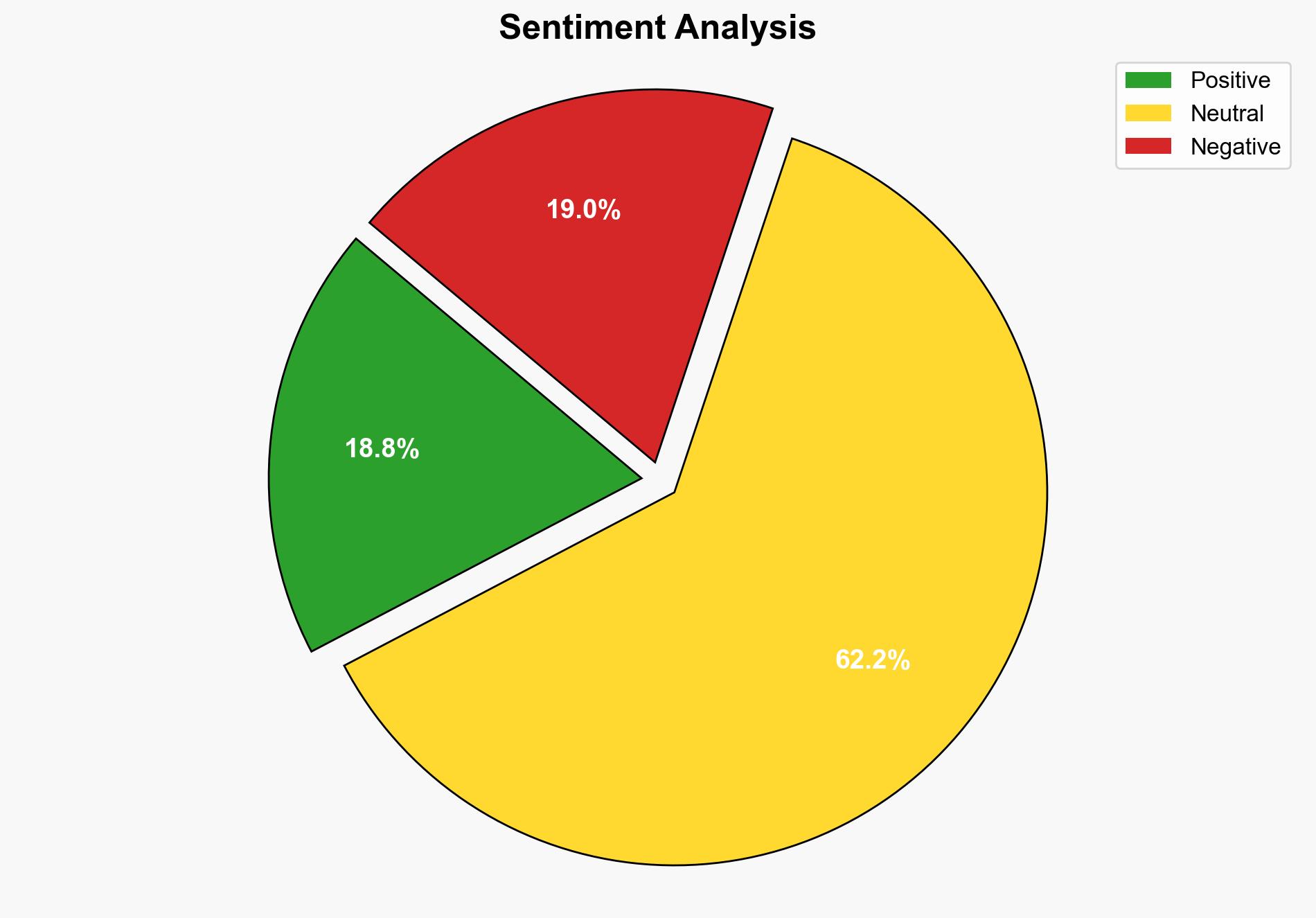Israeli attacks jeopardize delicate stability in southern Lebanon UN peacekeeping force – Globalsecurity.org
Published on: 2025-11-03
Intelligence Report: Israeli attacks jeopardize delicate stability in southern Lebanon UN peacekeeping force – Globalsecurity.org
1. BLUF (Bottom Line Up Front)
The strategic judgment indicates a medium confidence level that ongoing Israeli military actions in southern Lebanon are exacerbating regional instability and undermining UN peacekeeping efforts. The most supported hypothesis is that these actions are part of a broader strategy to pressure Lebanon regarding Hezbollah’s influence. Recommended action includes diplomatic engagement to reinforce UNIFIL’s mandate and promote dialogue between Israel and Lebanon to prevent further escalation.
2. Competing Hypotheses
1. **Hypothesis A**: Israeli military actions are primarily defensive, aimed at countering perceived threats from Hezbollah and ensuring national security. This hypothesis suggests that Israel’s actions are reactive and focused on deterring Hezbollah’s military capabilities.
2. **Hypothesis B**: Israeli actions are strategic, intended to pressure Lebanon and the international community to address Hezbollah’s influence in southern Lebanon. This hypothesis posits that Israel is using military pressure to achieve political objectives, including the weakening of Hezbollah’s position.
Using Analysis of Competing Hypotheses (ACH), Hypothesis B is better supported due to the pattern of Israeli actions coinciding with international criticism of Hezbollah and the strategic significance of the region.
3. Key Assumptions and Red Flags
– **Assumptions**: It is assumed that Israel perceives Hezbollah as a significant threat and that military actions are a viable means of exerting pressure. Another assumption is that UNIFIL’s presence is a stabilizing factor.
– **Red Flags**: The potential for cognitive bias exists in underestimating Hezbollah’s resilience or overestimating the impact of military actions on Lebanese policy. Inconsistent data regarding the effectiveness of UNIFIL’s interventions could indicate gaps in intelligence.
4. Implications and Strategic Risks
The ongoing military actions risk escalating into broader conflict, potentially drawing in regional actors and destabilizing the Middle East further. Economic impacts could arise from disrupted trade routes, while geopolitical tensions may increase between Israel and its neighbors. The psychological impact on local populations could lead to increased support for Hezbollah, complicating peace efforts.
5. Recommendations and Outlook
- Engage in diplomatic efforts to reinforce UNIFIL’s mandate and facilitate dialogue between Israel and Lebanon.
- Encourage confidence-building measures to reduce military tensions along the Blue Line.
- Scenario-based projections:
- **Best Case**: Successful diplomatic intervention leads to reduced hostilities and strengthened UNIFIL mandate.
- **Worst Case**: Escalation into open conflict involving regional actors, destabilizing the broader Middle East.
- **Most Likely**: Continued low-intensity conflict with sporadic escalations, maintaining a fragile status quo.
6. Key Individuals and Entities
– Tilak Pokharel (UNIFIL spokesperson)
– UNIFIL (United Nations Interim Force in Lebanon)
– Hezbollah
– Israeli Government
7. Thematic Tags
national security threats, regional focus, geopolitical tensions, peacekeeping operations





